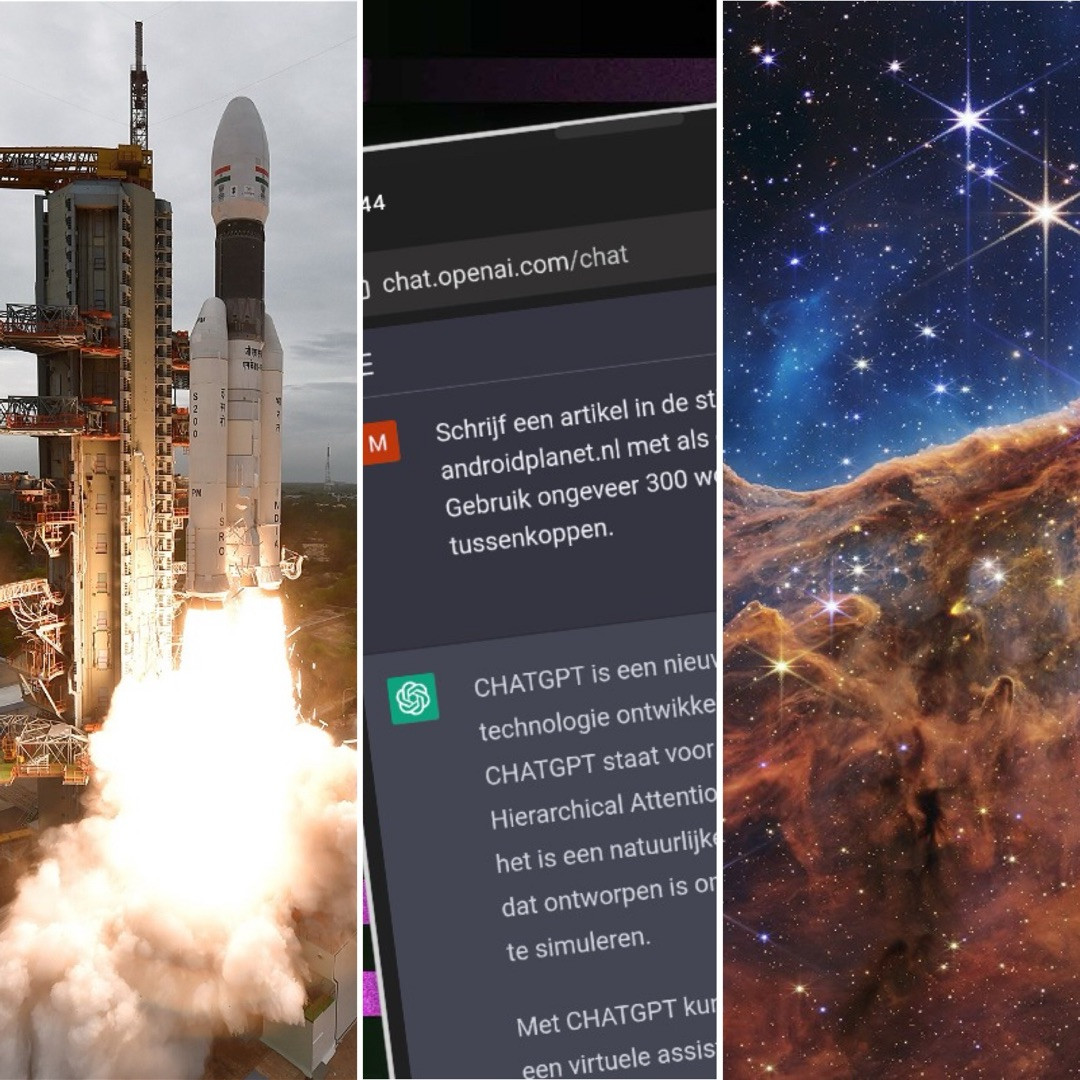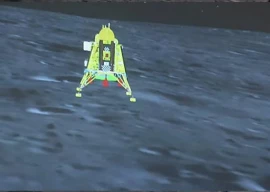
As we bid farewell to 2023, it's time to reflect on a year that has pushed the boundaries of human knowledge and technological prowess.
From groundbreaking innovations to paradigm-shifting discoveries, the past year has been nothing short of extraordinary. In this listicle, we'll guide you through the most significant events and trends that have shaped the tech and science landscape in 2023. Ranging from the latest advancements in artificial intelligence to remarkable strides in space exploration, we've got every facet covered. So, let's dive in and explore the remarkable journey of 2023 in the world of technology and science.
1. Launch of Chandrayaan-3
On July 14, 2023, India achieved a historic milestone by successfully landing its Chandrayaan-3 mission on the unexplored lunar south pole, where frozen water reserves are believed to exist. This achievement not only solidified India's position in space exploration but also showcased that lunar landers can be launched cost-effectively, at $75 million. Despite Chandrayaan-3 ceasing operation after landing, it accomplished its mission of detecting lunar surface sulfur and demonstrating the moon's soil as a good insulator. These advancements, along with reduced costs and more sustainable rocket technology, hint at a promising and accessible era of space exploration for humanity.
... ... and here is how the Chandrayaan-3 Rover ramped down from the Lander to the Lunar surface. pic.twitter.com/nEU8s1At0W
— ISRO (@isro) August 25, 2023
2. Bloom of artificial intelligence
In 2023, artificial intelligence (AI) came into its own, with OpenAI's ChatGPT leading the way. AI went mainstream, touching various aspects of life such as law, music, art, and science. Researchers harnessed AI to create content from brain scans and aid in conservation. Ethical concerns and the need for regulation were raised due to AI's potential misuse and job market impact. Despite these worries, AI's rapid advancement persisted, reshaping industries and necessitating workforce adjustments. It marked the dawn of a significant AI era, where user-friendly AI tools played a vital role, though security remained a concern.
today we launched ChatGPT. try talking with it here: https://t.co/uWra8LKFMN
— Sam Altman (@sama) November 30, 2022
3. 2023 takes the title for the hottest year
In 2023, the world faced an alarming surge in record-breaking heat, leading to catastrophic consequences globally. This year claimed the dubious title of the hottest on record, surpassing the previous record set in 2016. The impacts of this heatwave were devastating, causing floods, wildfires, cyclones, and rendering some regions uninhabitable. However, there were silver linings, including the UK's increased green energy production and the use of AI for advanced weather and climate forecasting.
Just published: 2023 is the warmest year in recorded history.
— Copernicus ECMWF (@CopernicusECMWF) December 6, 2023
2023 has now had six record breaking months and two record breaking seasons - summer and autumn.
What's next? How will the world manage climate risks from #COP28UAE onwards?
Details here: https://t.co/hTINdzl8WK pic.twitter.com/TmlLRiSB95
4. Year of astronomical breakthroughs
In June of 2023, astronomers using the James Webb Space Telescope made a groundbreaking discovery by detecting the presence of methyl cation (CH3+) deep within the Orion Nebula, 1,350 light years from Earth. This organic molecule, considered fundamental to life as we know it, had never before been observed in space. The Orion Nebula hosts young star systems and their protoplanetary disks, providing insight into planetary formation. The James Webb Space Telescope also confirmed its first exoplanet earlier in the year, ushering in a new era of planetary exploration. These discoveries, along with ongoing efforts to identify distant planets and explore the Trappist-1 solar system, exemplify humanity's relentless quest to unveil the mysteries of the cosmos.
Happy 2-year anniversary, Webb! 🥳
— NASA Webb Telescope (@NASAWebb) December 25, 2023
It's hard to believe that it's been two years since Webb first set off to #UnfoldTheUniverse. With breakthroughs that span from our solar system to the farthest reaches of the universe, Webb is the Christmas gift that keeps on giving. pic.twitter.com/tBgt5RoVr5
5. Nuclear fusion's promising future
In 2023, significant progress was made in the pursuit of nuclear fusion as a clean and virtually limitless energy source. Building upon the breakthrough achieved at the National Ignition Facility (NIF) in 2022, where controlled fusion reactions produced more energy than consumed, researchers at NIF successfully replicated this gain three times in 2023. While nuclear fusion's potential to meet future energy needs is immense, practical implementation faces numerous challenges, including scalability, safety, and energy requirements. Nevertheless, the year witnessed a continued push for fusion energy, with the US Department of Energy testing new materials and the construction of the world's largest fusion reactor in Japan, bringing us closer to a future powered by clean and sustainable fusion energy.
US scientists repeated what appeared to be an energy breakthrough, a nuclear fusion reaction that gave off more energy than went into it for a second time after months of near-misses https://t.co/pihfLtdunf pic.twitter.com/CxUIl62rux
— Reuters (@Reuters) August 7, 2023


1672385156-0/Andrew-Tate-(1)1672385156-0-165x106.webp)











1674717934-0/chatgpt-(1)1674717934-0-270x192.webp)






COMMENTS
Comments are moderated and generally will be posted if they are on-topic and not abusive.
For more information, please see our Comments FAQ